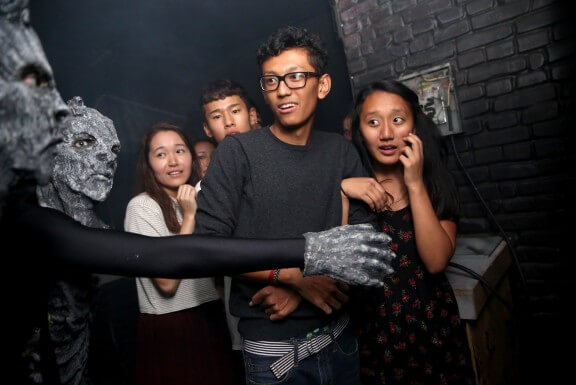 Isaiah Washington plays the ringleader of the 2002 Beltway sniper attacks in “Blue Caprice.”
Isaiah Washington plays the ringleader of the 2002 Beltway sniper attacks in “Blue Caprice.”
Credit: IFC Films
‘Blue Caprice’
Director: Alexandre Moors
Stars: Isaiah Washington, Tequan Richmond
Rating: R
3 (out of 5) Globes
“Blue Caprice,” a somewhat expressionistic recounting of the 2002 Beltway sniper attacks in Washington, D.C., is a movie at war with itself. On one hand, it’s a moody portrait of the unknowability of truth, trying to normalize ringleader John Allen Muhammad (Isaiah Washington) and his young, adopted charge Lee Boyd Malvo (Tequan Richmond). Their reign of terror doesn’t even start till 20 minutes remain, while key moments — including their capture and most of the aftermath — is completely excised.
On the other hand, it’s a film with plenty of not very gentle nudges that offer purely presumptive explanations. Following their apprehension, after keeping the capital in fear for three weeks, there was much debate about motive. Even if it stops short of explaining why they’re doing what they’re doing, “Blue Caprice”’s script pushes us in certain, too assumptive directions. Muhammad, who adopts Malvo during a trip to Antigua, talks and talks and talks, while Malvo listens and listens and listens. While Muhammad initially just seems to have garden variety disillusionment with life, the more he rants, the more he betrays. Roaming the suburbs, he talks of the “vampires” who live there, and holds special anger for his ex, who blocked custody to his kids.
Muhammad can’t straight up kill his ex, but he needs to take his mounting homicidal rage out on someone. Malvo never speaks, but it’s clear that his need for a father figure has made him susceptible to a good brainwash. In an even less subtle scene, he’s even shown playing “Doom,” just in case we didn’t get our token dig at violent video games. R.F.I. Porto’s script is alternately ambiguous and tidy. It doesn’t really fit with Alexandre Moors’ direction, which is all about capturing the day-to-day while staging mounting dread.
But Moors’ direction, and the acting, gives it the illusion of something sturdier. Washington hasn’t been seen much since his “Grey’s Anatomy” debacle, and his appearance here is a reminder that, whatever personal demons he may or may no longer have, he’s one of our greats. Even as his monologues gain intensity, his voice never raises in pitch. He keeps everything buttoned up, trying to maintain some semblance of respectability among his dodgy friends — including Tim Blake Nelson and Joey Lauren Adams — while always on the brink of going too far to the dark side. Admittedly it’s very much a performance in what tries to be naturalistic film, but he’s so magnetic it hardly matters.














